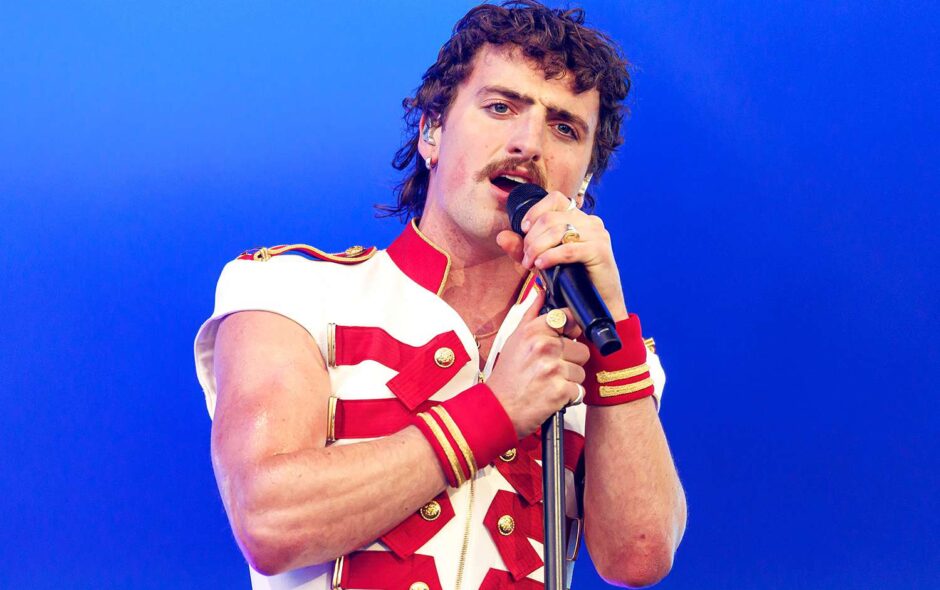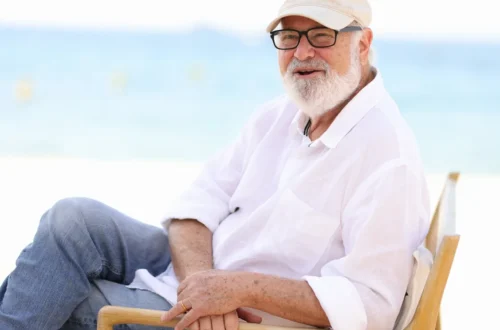Benson Boone has emerged as one of pop music’s most visible young stars, charting a rapid and unconventional rise from social media performer to arena headliner. Born in Monroe, Washington in 2002, Boone discovered his vocal ability almost by accident during a high school battle-of-the-bands event. A brief appearance on American Idol in 2021 gave him national exposure, but he left the competition early, determined not to be defined by the reality TV route. He instead turned to TikTok, where short clips of his performances and original songs quickly built a large following. That momentum led to a record deal and the release of his debut single, “Ghost Town,” which found international success.
Boone’s debut album, Fireworks & Rollerblades, arrived in 2024 and produced his breakout single “Beautiful Things,” a multi-platinum hit that topped charts around the world and earned him a Grammy nomination for Best New Artist. His stage presence grew along with his reputation, as he opened for major acts and made high-profile festival appearances, including a guest performance of “Bohemian Rhapsody” with Brian May at Coachella.
In June 2025, Boone released his second album, American Heart, which debuted at number two on the U.S. Billboard 200 and reached number one in multiple countries. Its success was bolstered by a world tour and a carefully cultivated image blending retro glam with polished pop production.
While his commercial performance has been undeniable, Boone’s artistic reception has been more divided. Critics have argued that his music, though accessible and radio-ready, leans heavily on familiar formulas and well-worn emotional tropes. The production, hooks, and imagery are seen by some as tailored for maximum viral potential, particularly on TikTok, rather than for depth or innovation. His sophomore album, written in just over two weeks, has been described by detractors as rushed and lacking in emotional complexity.
Online discussion has reflected the split in opinion. Some listeners praise his vocal talent and charisma, while others see his work as a blend of borrowed styles that raises questions about artistic authenticity. His detractors have dismissed his performances as overly calculated, suggesting that his rise owes more to marketing than to musical originality.
Boone has addressed the criticism directly, using his own social media accounts to engage with skeptics. In a recent post, he urged those who dislike his work to offer specific feedback rather than vague dismissal, pointing out that constructive critique is the only way for an artist to improve. He has also poked fun at the backlash, joking about overplaying his hits or overdoing acrobatics on stage as reasons people might have to complain.
His story reflects the opportunities and challenges of modern pop stardom. The same digital platforms that propelled him to fame also amplify the scrutiny and skepticism that come with rapid success. His career so far has demonstrated a knack for connecting with large audiences and capitalizing on viral moments, but it has also fueled debate about substance versus style in contemporary music.
As Boone continues his tour and promotes American Heart, the question lingers whether he will evolve beyond the glossy, hit-focused approach that has defined his early work. For now, he remains a young artist with both momentum and critics, navigating the fine line between mass appeal and artistic depth, and doing so in full view of a global audience that helped create his rise.




